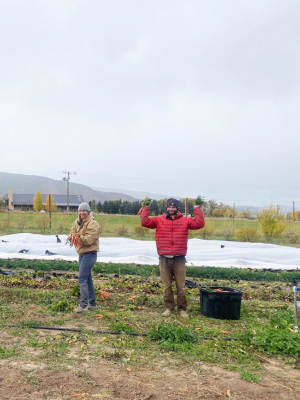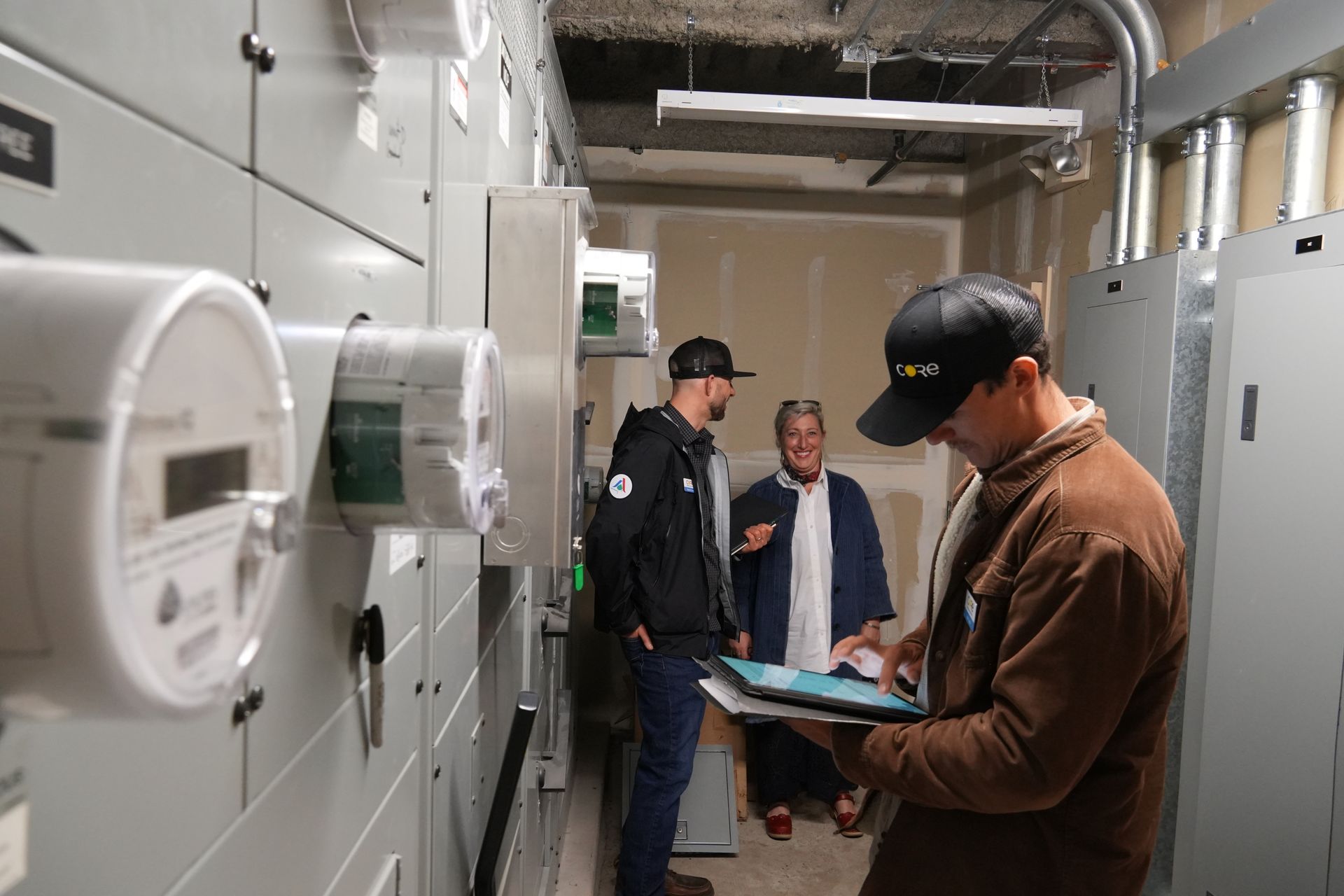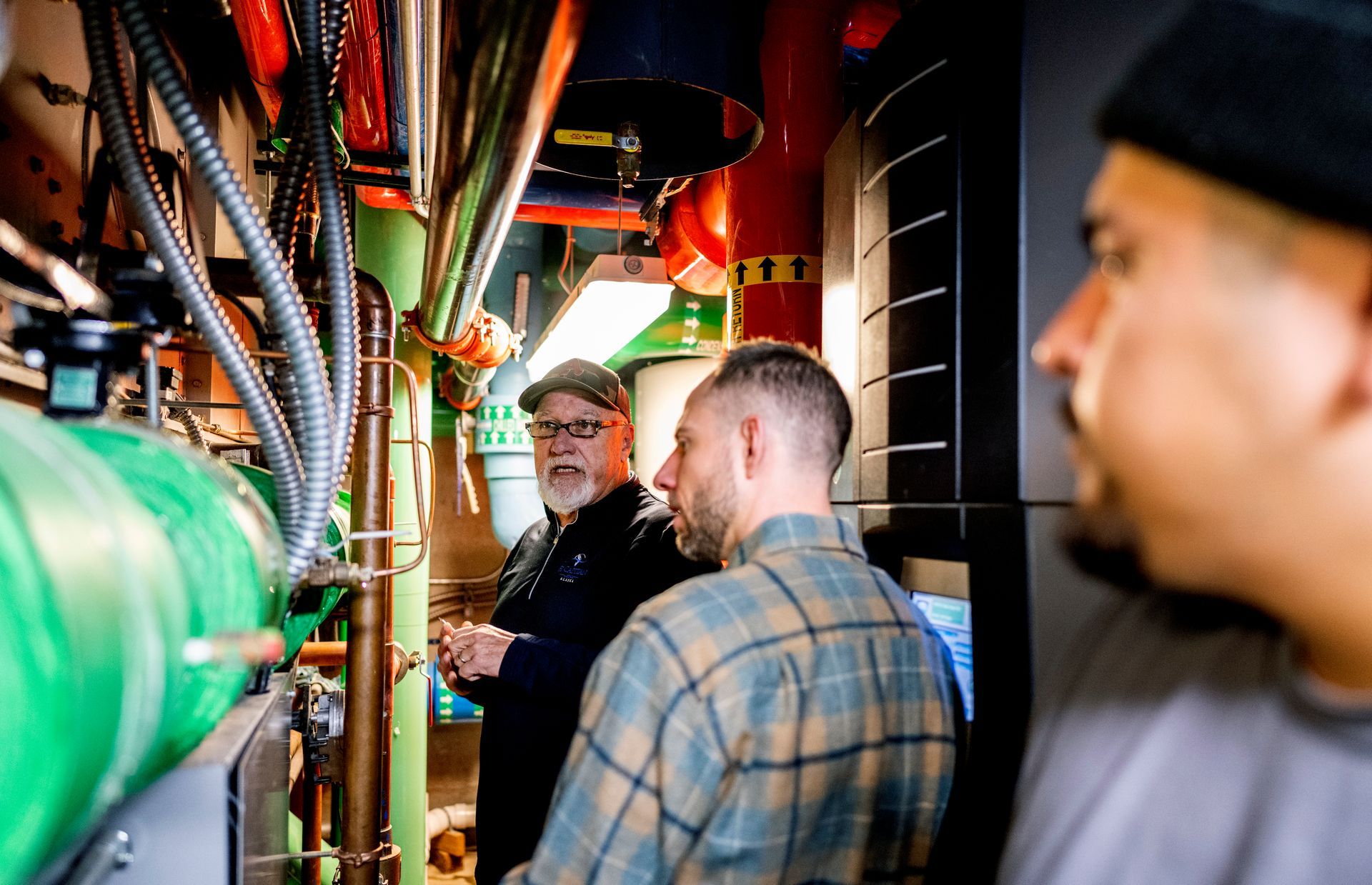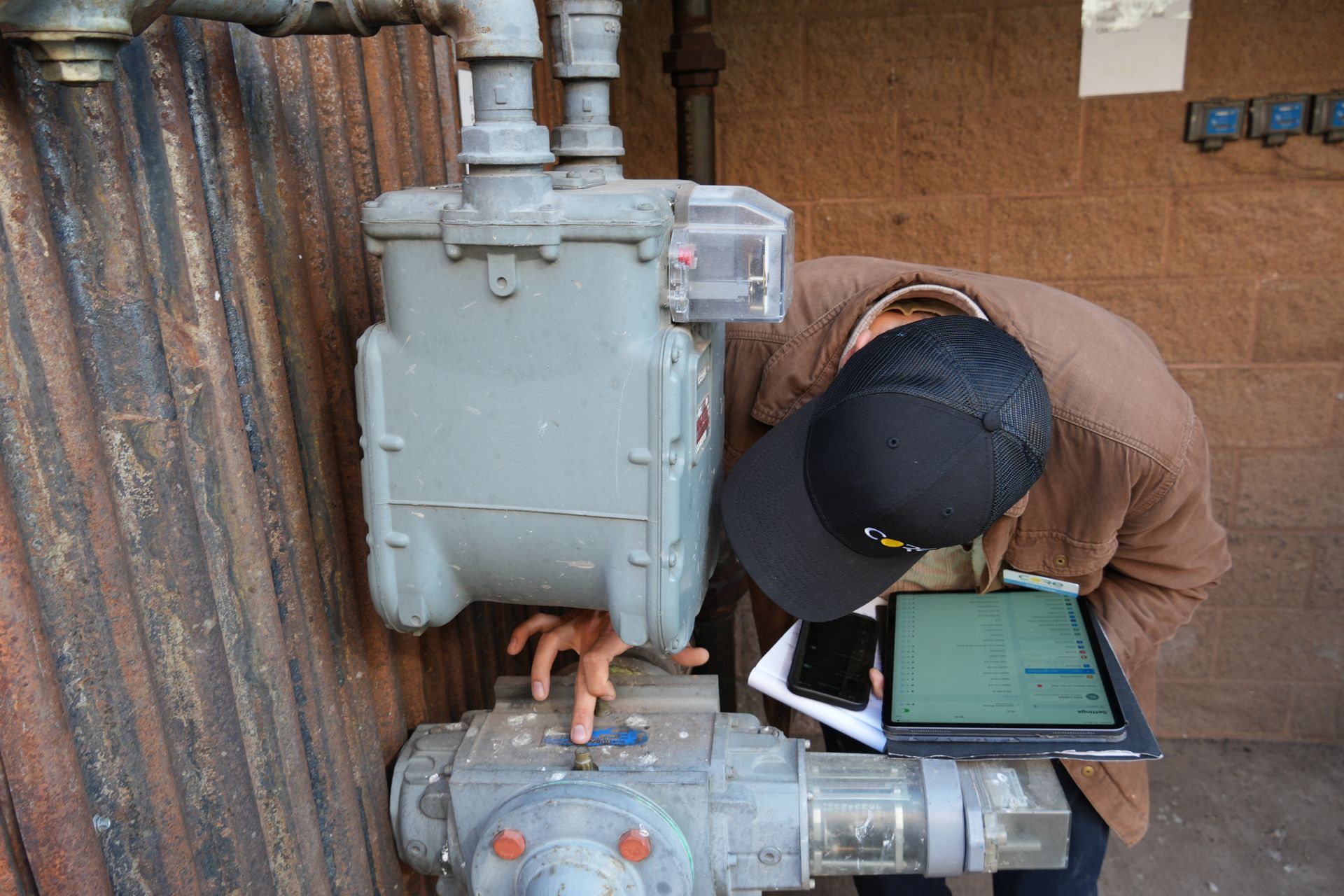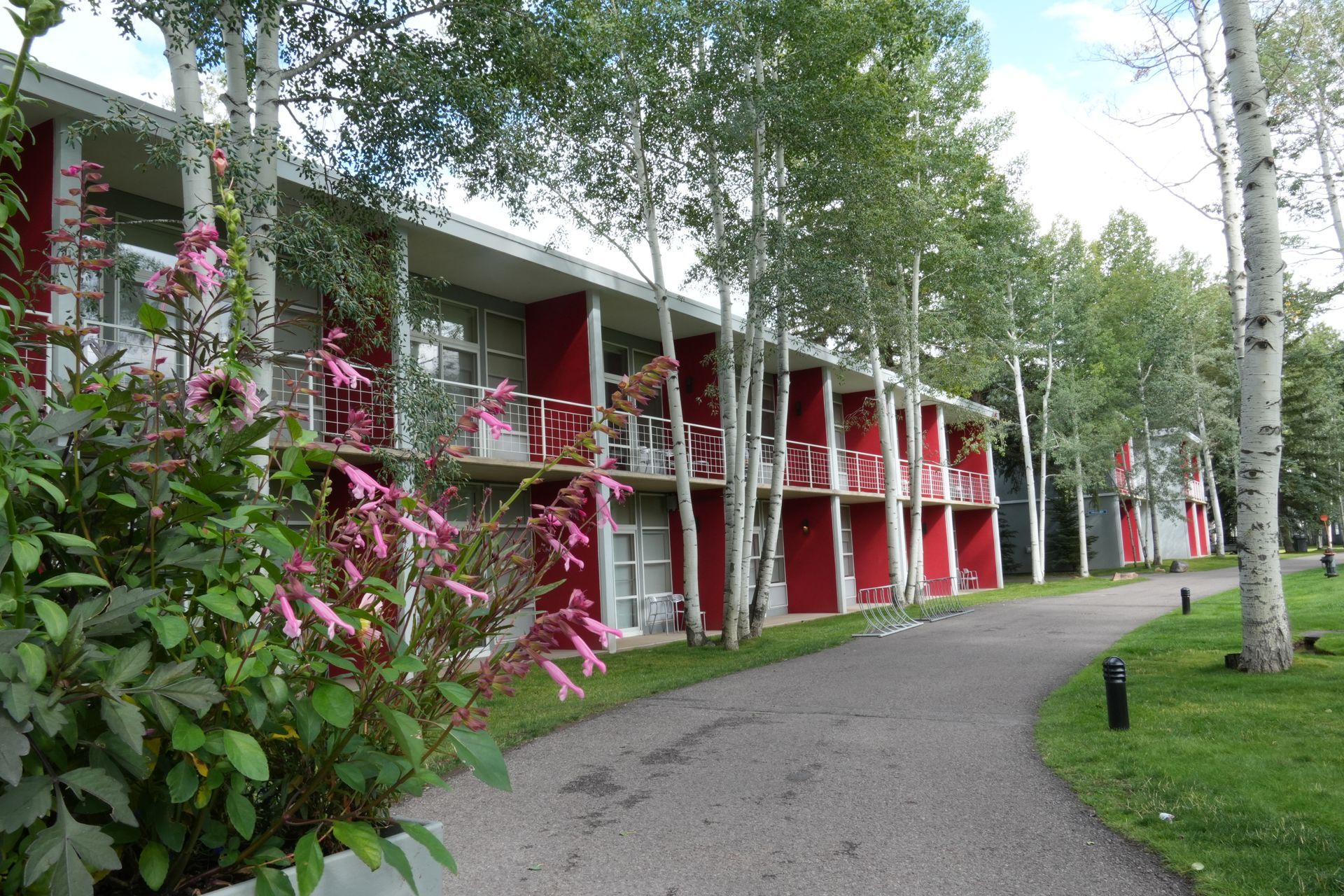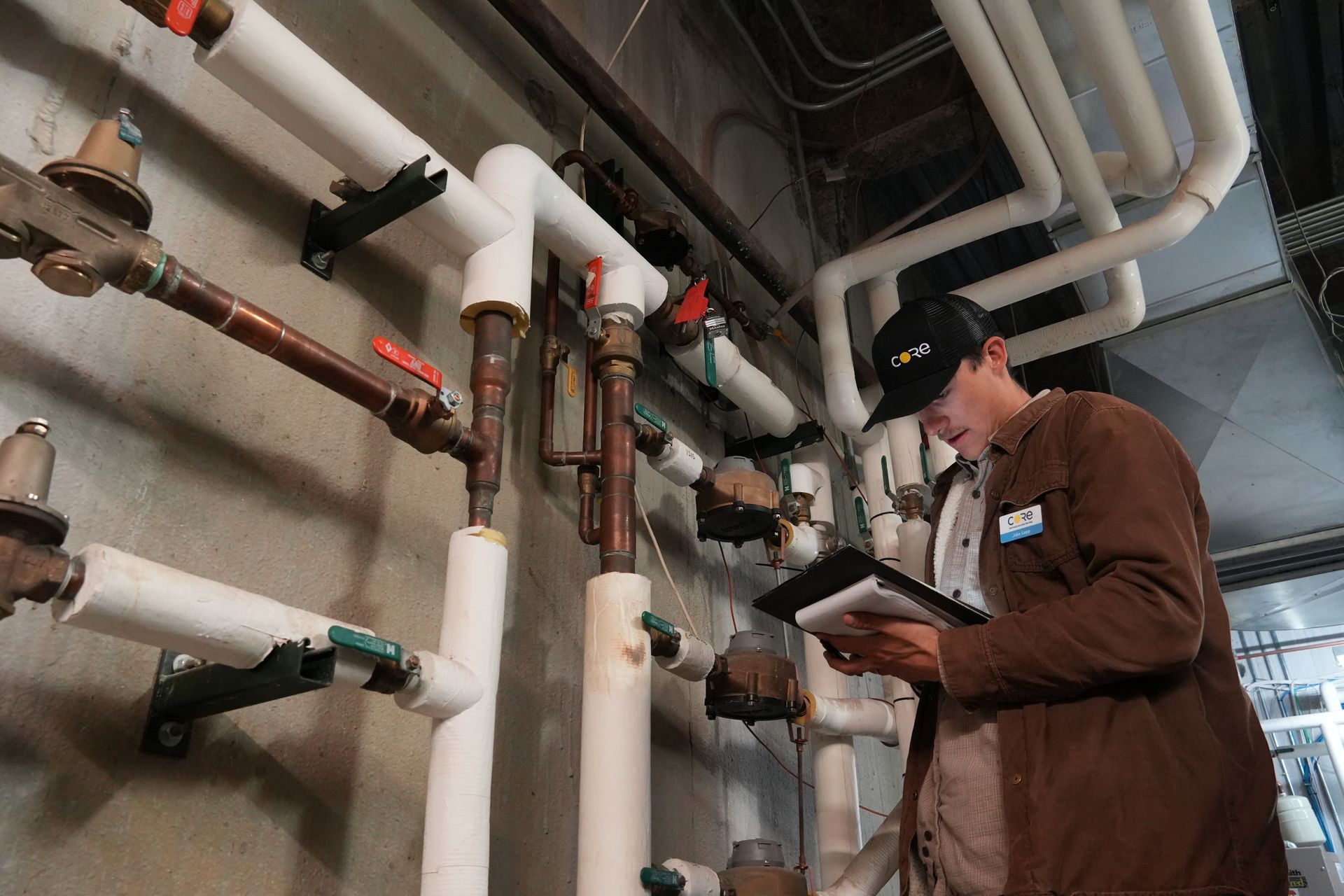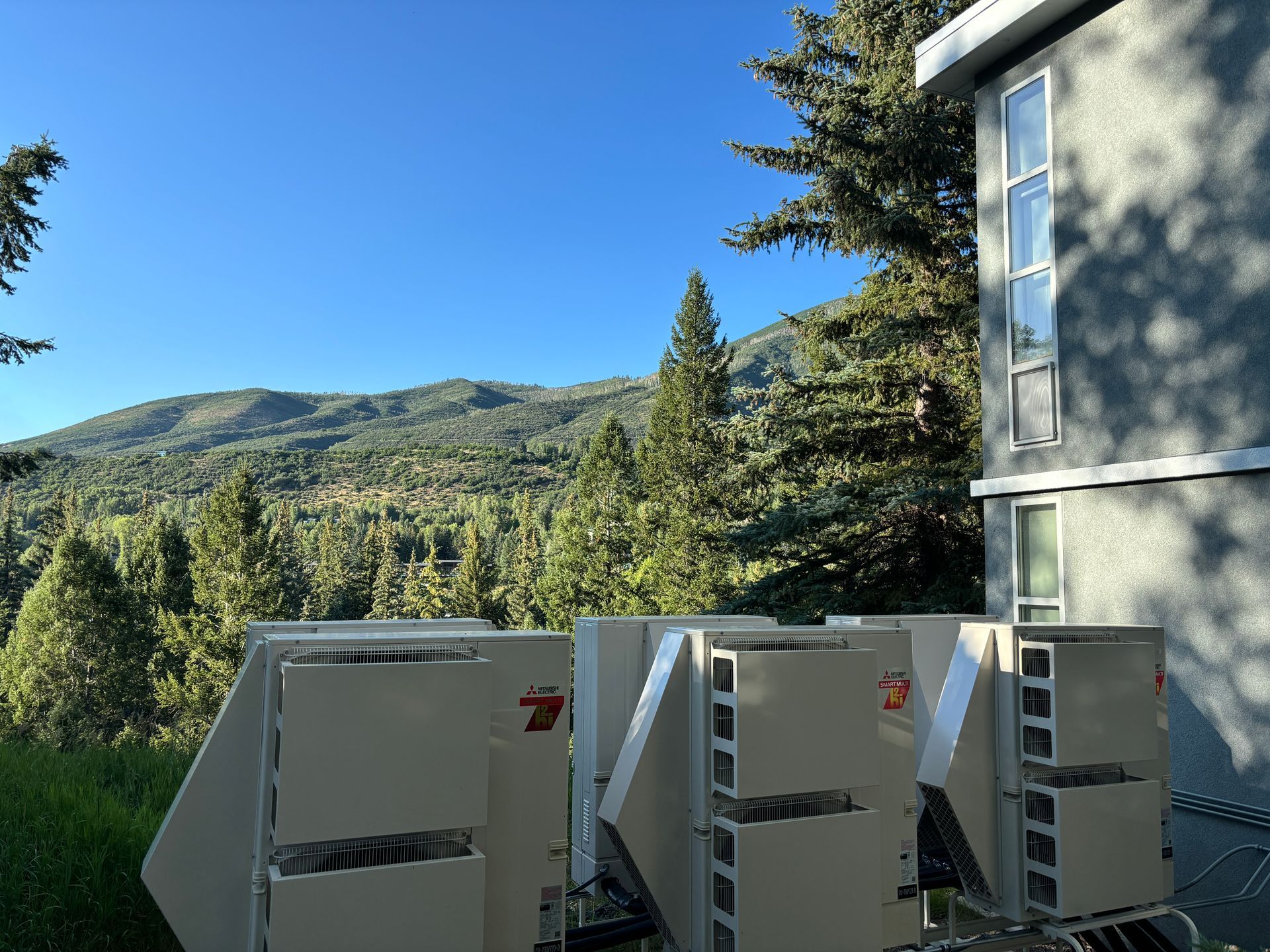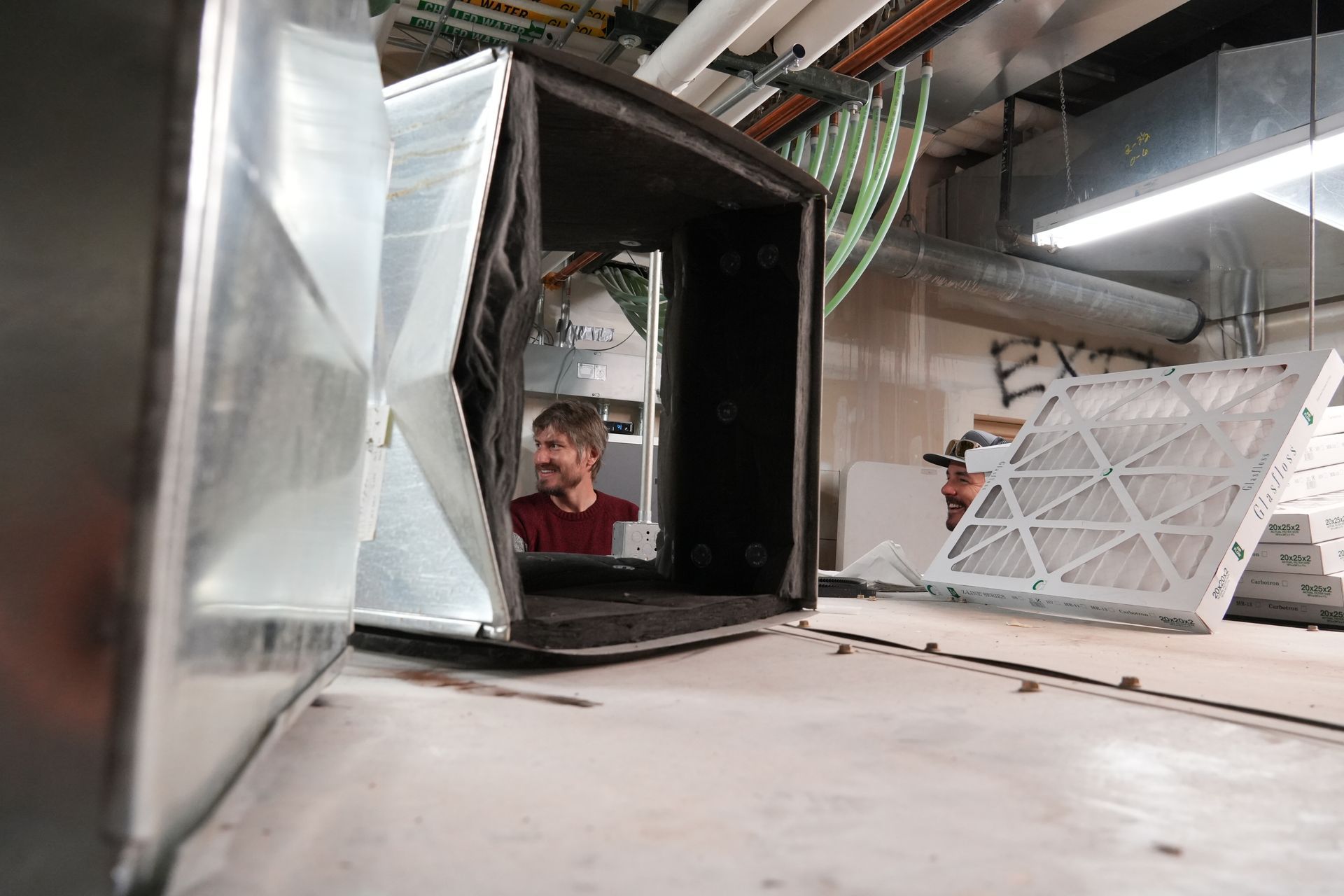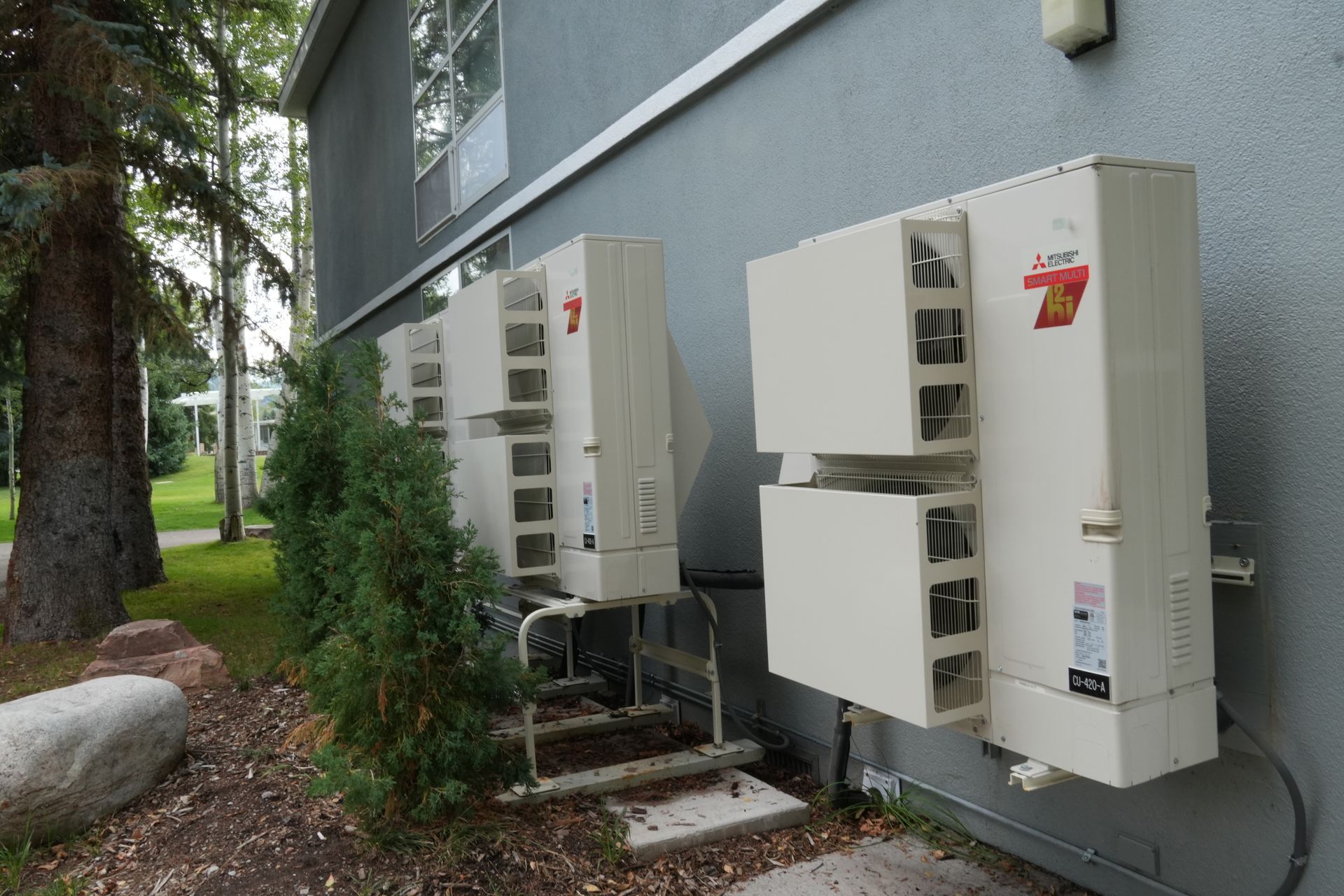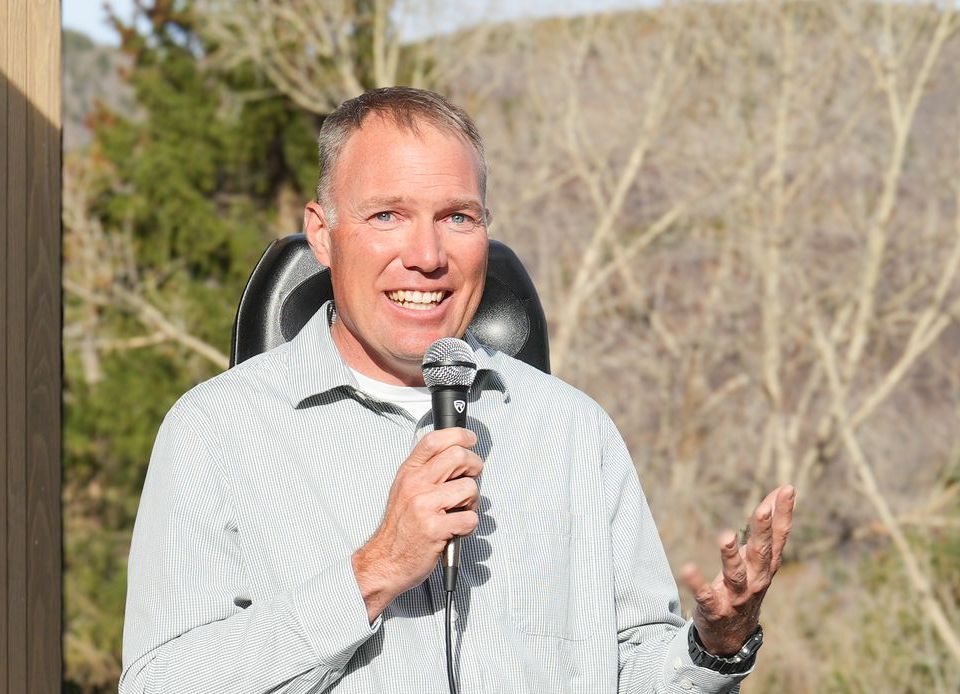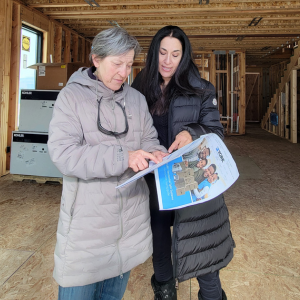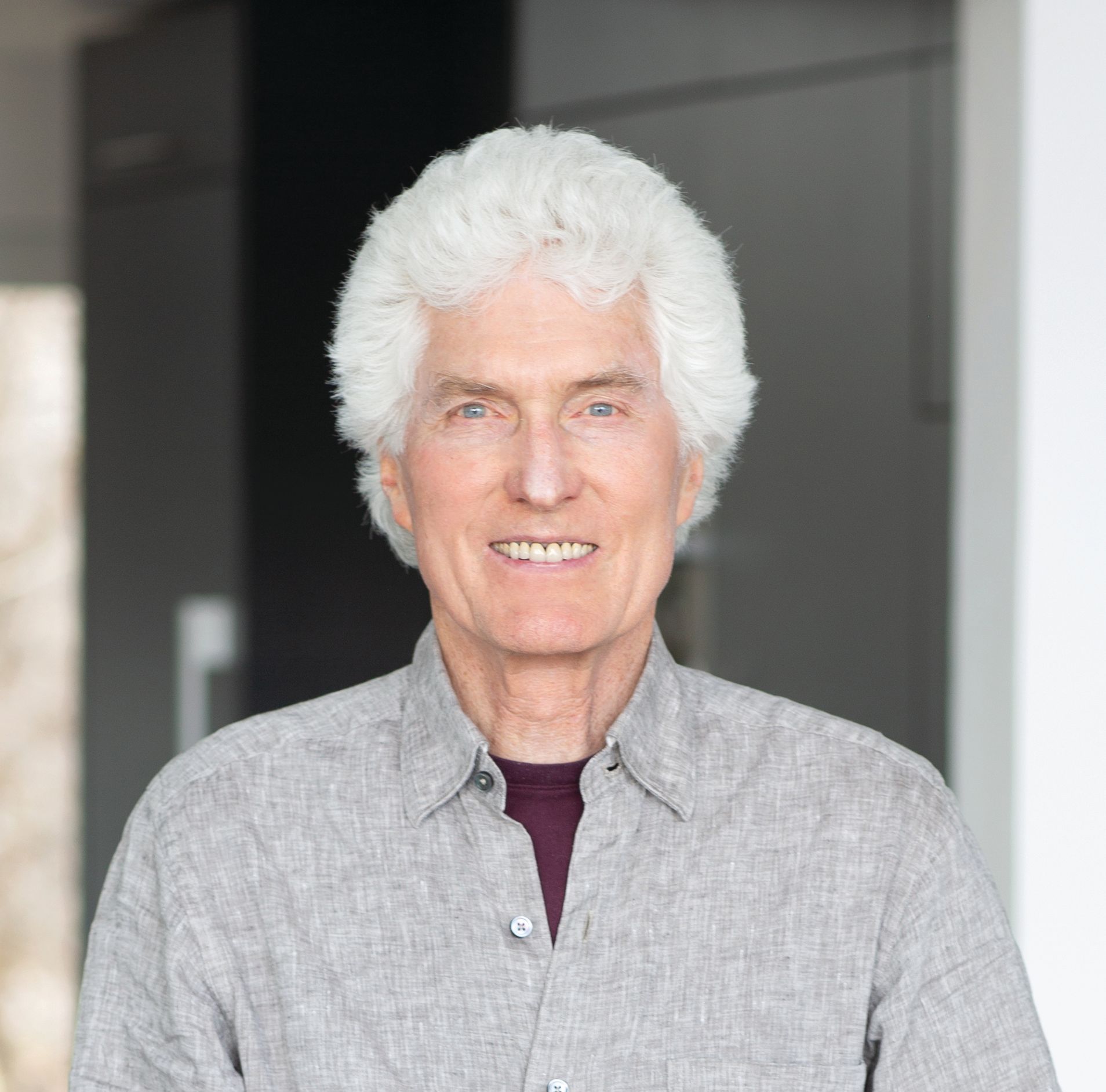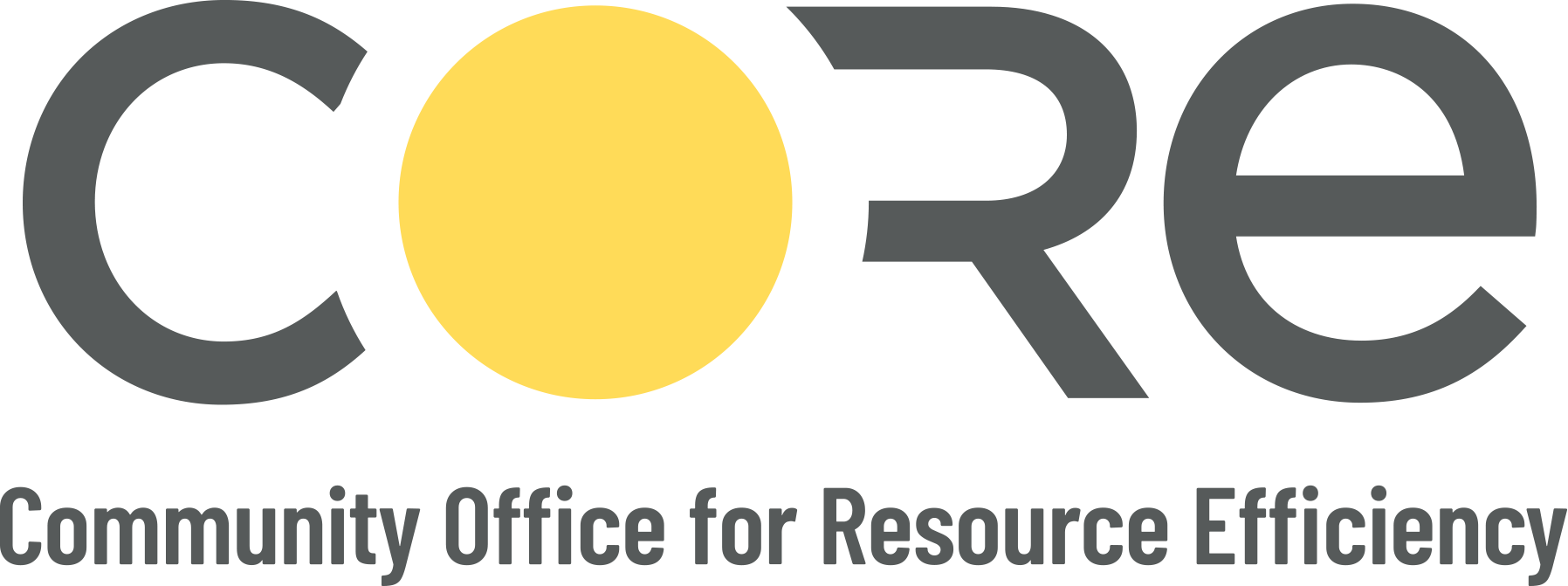Inside the Building IQ Program: Cutting Emissions One Building at a Time
Success Stories from Building IQ Participants Embracing Benchmarking
The Building IQ Program was established in 2022 to address the 57% of greenhouse gas emissions that come from buildings in Aspen. The program starts with benchmarking when a building's energy and water use is measured and compared to similar buildings. This process alone has proven to decrease a building’s energy consumption by 2-3% each year.
Ben Wolff, a long-time resident of the Roaring Fork Valley, is a managing partner and owner at Frias Properties with more than ten years of experience in property management and hospitality. Per City of Aspen
Ordinance No. 5, Wolff is required to benchmark several of his properties. While benchmarking his buildings is a requirement, Wolff finds value in the process and shared that his favorite part is meeting with the CORE team out in the field. He said, “They are all good people. It was fun to meet with them, show them the properties, and walk them through.” CORE collected utility data from the meters at each of his buildings, which Wolff said was a very simple and turn-key process.
Owners and managers of Aspen buildings can utilize CORE’s expert advice, high-quality energy-use data, and financial and technical support to improve efficiency and reduce emissions from their buildings. Since the inception of Building IQ, participants have completed a total of ten energy-saving projects using CORE’s technical advice and have received over $190,000 in funding. For example, the
Yellow Brick installed the region's first electric heat pump snowmelt system with the help of a
grant from CORE and advice from CORE’s
Energy Concierge. The Yellow Brick is a City of Aspen-owned building and is one of the most efficient buildings in Aspen.
Aspen Meadows began working with CORE and the City of Aspen to measure the energy and water use of their building during the first cycle of benchmarking in 2022. Now in the third cycle, Aspen Meadows has partnered with CORE for support beyond benchmarking, including a heat pump project which is the first of its kind in Aspen. All of their 102 hotel rooms now have heat pumps with no backup heat. This project contributed to a 217 MTCO2e decrease in greenhouse gas emissions, equating to the emissions of 28 homes’ energy use for one year.
Dig into the
2024 Building IQ Annual Benchmarking Report to learn more about how benchmarking is impacting Aspen. To learn more about the Building IQ Program and how CORE can help,
reach out to our team.
